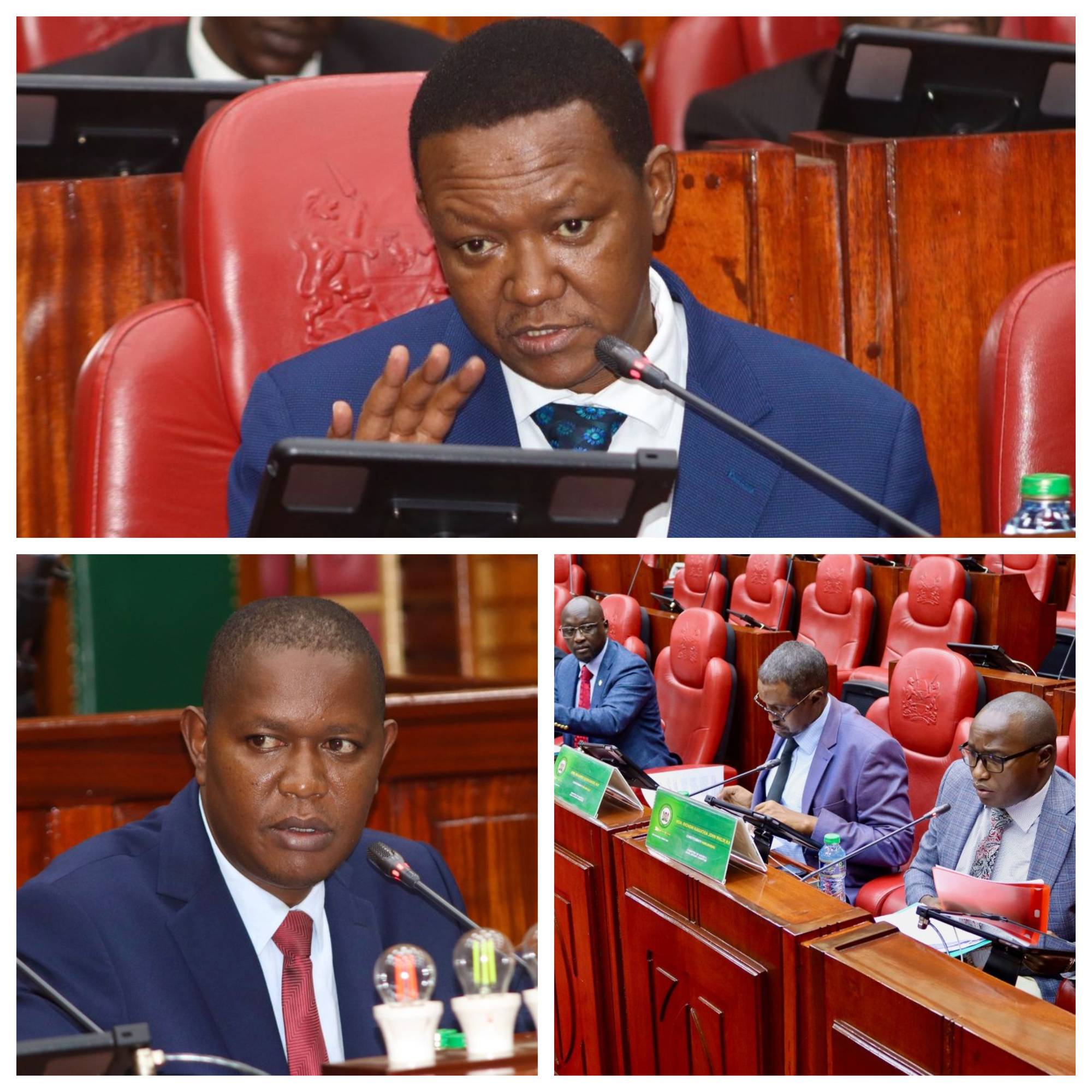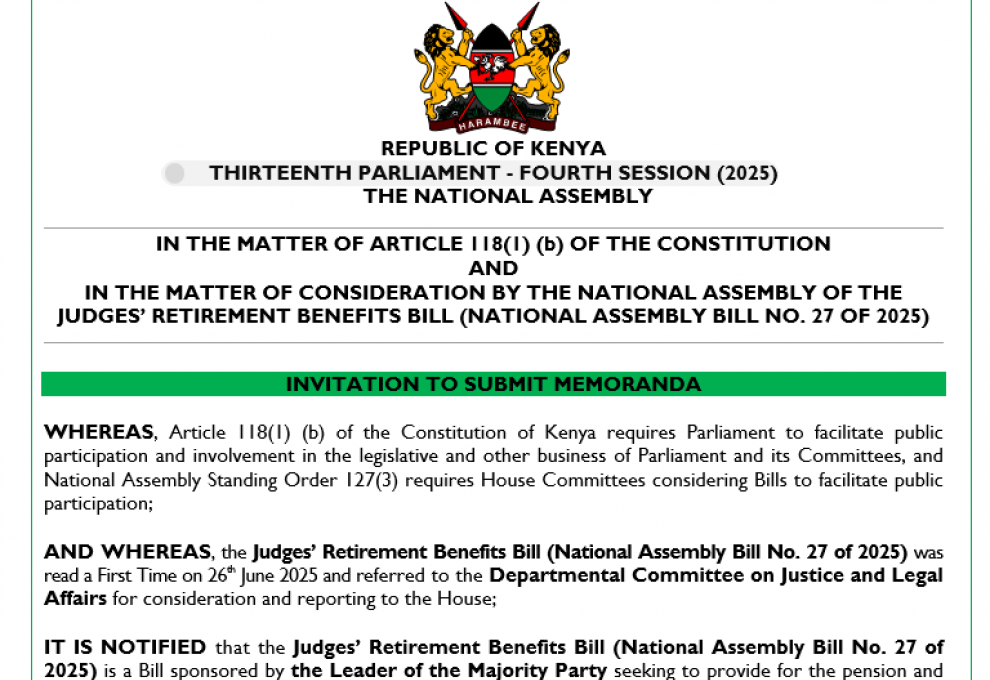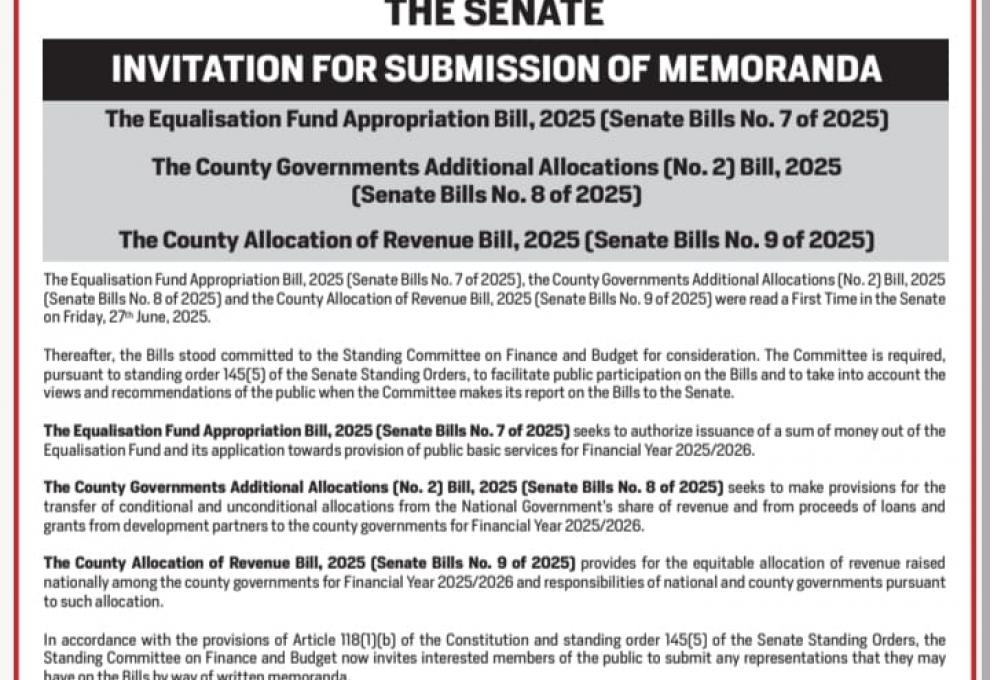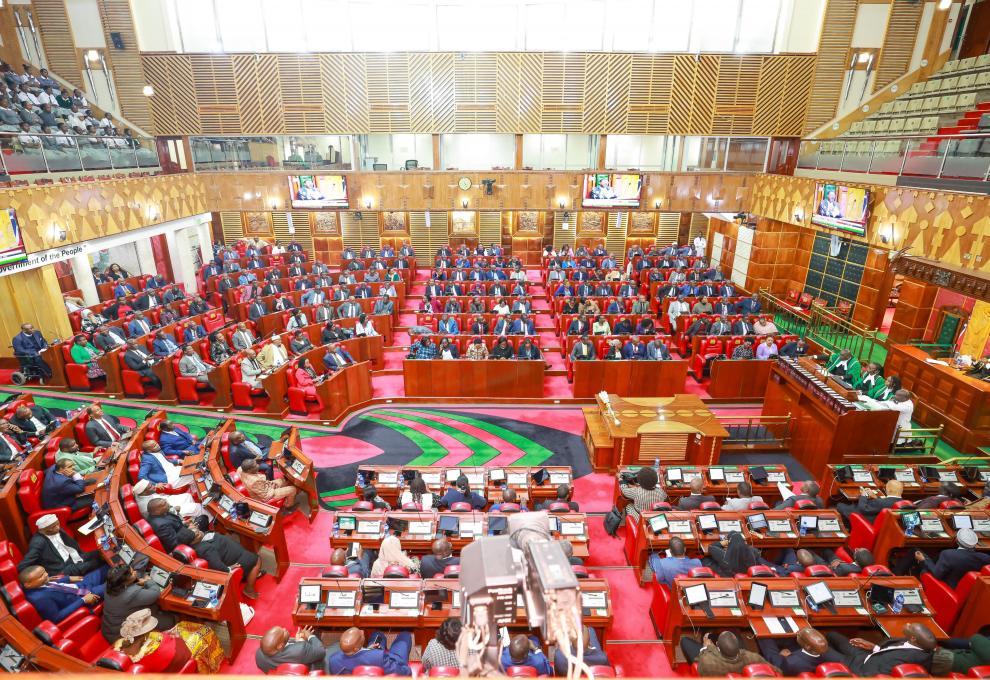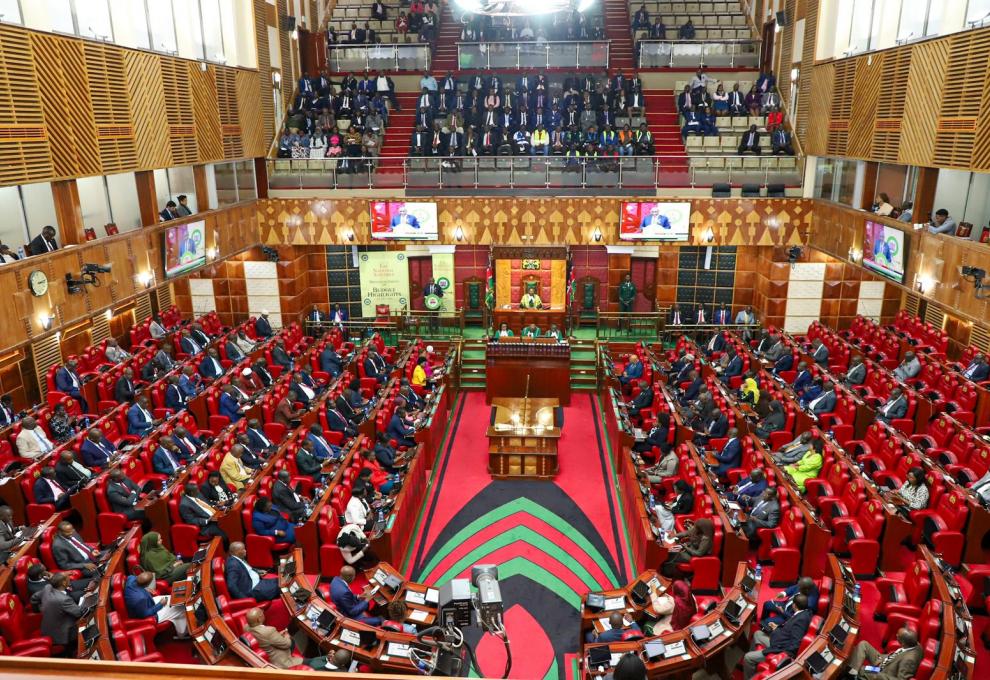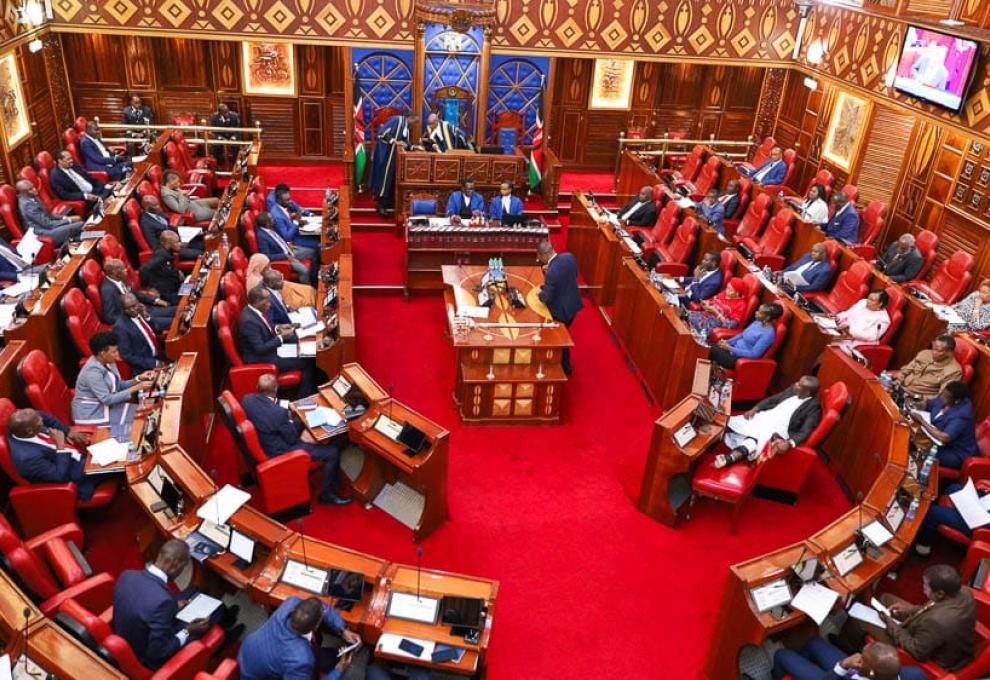THE COMMITTEE ON JUSTICE AND LEGAL AFFAIRS MEETS WITH CS FOREIGN AND DIASPORA AFFAIRS TO DISCUSS DOUBLE TAXATION
The National Assembly Committee on Justice and Legal Affairs(JLAC) met with the Cabinet Secretary (CS) for Foreign and Diaspora Affairs Dr. Alfred Mutua to discuss the guidelines on the agreement on Double Taxation.
The CS, having been invited on short notice, requested the Vice-Chairperson Hon. Mwengi Mutuse (Kibwezi West) who was chairing the session to give him time to consult with the Attorney General and the CS for National Treasury and Economic Planning in order to develop an in-depth report on the issue.
Dr. Mutua admitted that double taxation has made it difficult to get funding for our country. “The issue of double taxation is always discussed every time the President and myself hold bilateral talks with other Nations while trying to get investors. It’s an issue that has stopped a lot of funding coming to this country, from the Japanese, Germans, Chinese, Americans, and many other organizations. This is because there is a lack of clarity on the issue,” he said.
In addition, the Committee met with Hon. Geoffrey Ruku (Mbeere North) on his proposal to amend Section 45 of the Anti-corruption and Economic Crimes Act to remove the inordinate and undue criminalization of flaws in Public Procurement Law. The Bill seeks to remove the inordinate culpability prescribed on persons in charge of administration, custody, management, receipt, or use of any part of public revenue or public property as administrative flaws, as they are addressed in other Acts governing the professional conduct of various professionals engaged in the procurement process.
It further proposes to completely remove the ambiguity of the term “prior planning,” terming it as strange to the legislation governing public procurement in Kenya.
The legislator argued that the removal of the subsections will not affect the Act.
“This Section 45 (2) (b) and (c) has been subject to abuse of the legal processes because the criminal justice administration should be in the interest of the public. This word willfully and carelessly is subject to serious legal interpretation in any court of law. And since it can draw different interpretations, it will be used to drag our professionals and the public servants from one court to the other,” said Hon. Ruku.



